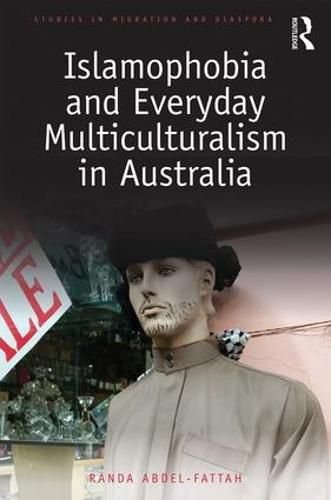Readings Newsletter
Become a Readings Member to make your shopping experience even easier.
Sign in or sign up for free!
You’re not far away from qualifying for FREE standard shipping within Australia
You’ve qualified for FREE standard shipping within Australia
The cart is loading…






This book explores Islamophobia in Australia, shifting attention from its victims to its perpetrators by examining the visceral, atavistic nature of people’s feelings and responses to the Muslim ‘other’ in everyday life.
Based on ethnographic fieldwork, Islamophobia and Everyday Multiculturalism sheds light on the problematisations of Muslims amongst Anglo and non-Anglo Australians, investigating the impact of whiteness on minorities’ various reactions to Muslims. Advancing a micro-interactional, ethnographically oriented perspective, the author demonstrates the ways in which Australia’s histories and logics of racial exclusion, thinking and expression produce processes in which whiteness socializes, habituates and ‘teaches’ ‘racialising’ behaviour, and shows how national and global events, moral panics, and political discourse infiltrate everyday encounters between Muslims and non-Muslims, producing distinct structures of feeling and discursive, affective and social practices of Islamophobia. As such, it will be of interest to social scientists with interests in race and ethnicity, migration and diaspora and Islamophobia.
$9.00 standard shipping within Australia
FREE standard shipping within Australia for orders over $100.00
Express & International shipping calculated at checkout
This book explores Islamophobia in Australia, shifting attention from its victims to its perpetrators by examining the visceral, atavistic nature of people’s feelings and responses to the Muslim ‘other’ in everyday life.
Based on ethnographic fieldwork, Islamophobia and Everyday Multiculturalism sheds light on the problematisations of Muslims amongst Anglo and non-Anglo Australians, investigating the impact of whiteness on minorities’ various reactions to Muslims. Advancing a micro-interactional, ethnographically oriented perspective, the author demonstrates the ways in which Australia’s histories and logics of racial exclusion, thinking and expression produce processes in which whiteness socializes, habituates and ‘teaches’ ‘racialising’ behaviour, and shows how national and global events, moral panics, and political discourse infiltrate everyday encounters between Muslims and non-Muslims, producing distinct structures of feeling and discursive, affective and social practices of Islamophobia. As such, it will be of interest to social scientists with interests in race and ethnicity, migration and diaspora and Islamophobia.